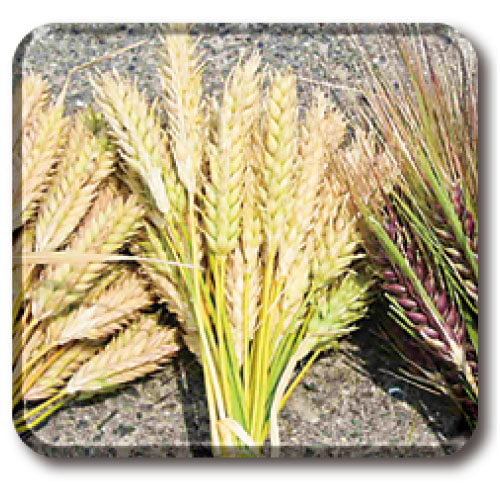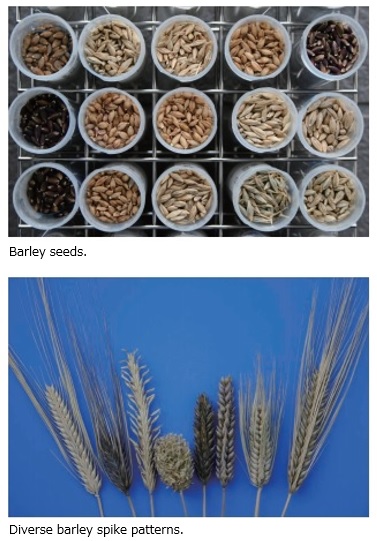
- Core Center:Institute of Plant Science and Resources, Okayama University
- Principal Investigator:Hiroshi Hsano
- FAX:+81-86-434-1249
概要Overview
 Barley is used for brewing, food, and feed. It exists as a variety of wild and cultivated species with high adaptability and resistance to environmental changes such as drought, salt, and moisture damage. Due to its diploid genome structure, mutations are easy to detect in cultivated species. A high-quality genome assembly has also been completed. Therefore, barley is used as a model in plant science and practical applications, including the identification of useful genes.
Barley is used for brewing, food, and feed. It exists as a variety of wild and cultivated species with high adaptability and resistance to environmental changes such as drought, salt, and moisture damage. Due to its diploid genome structure, mutations are easy to detect in cultivated species. A high-quality genome assembly has also been completed. Therefore, barley is used as a model in plant science and practical applications, including the identification of useful genes.
Stock
・Cultivated and wild strains collected from around the world: about 11,000 lines
・Genetic experimental stocks: about 9,000 lines
・Genome-modified lines: 3 lines
・Full-length cDNA clones (to be expanded in 2022): about 220,000 clones
・Genomic DNA: about 3,300 samples
Subjects in the NBRP programs related to “Barle”
【 Value addition subprogram/ Genome Information Upgrading Program 】
| FY2024-FY2025 | オオムギ多機能バイオリソースの整備 (in Japanese) |
| FY2003 | Genome Information Upgrading Program : FY2002-FY2006 |

